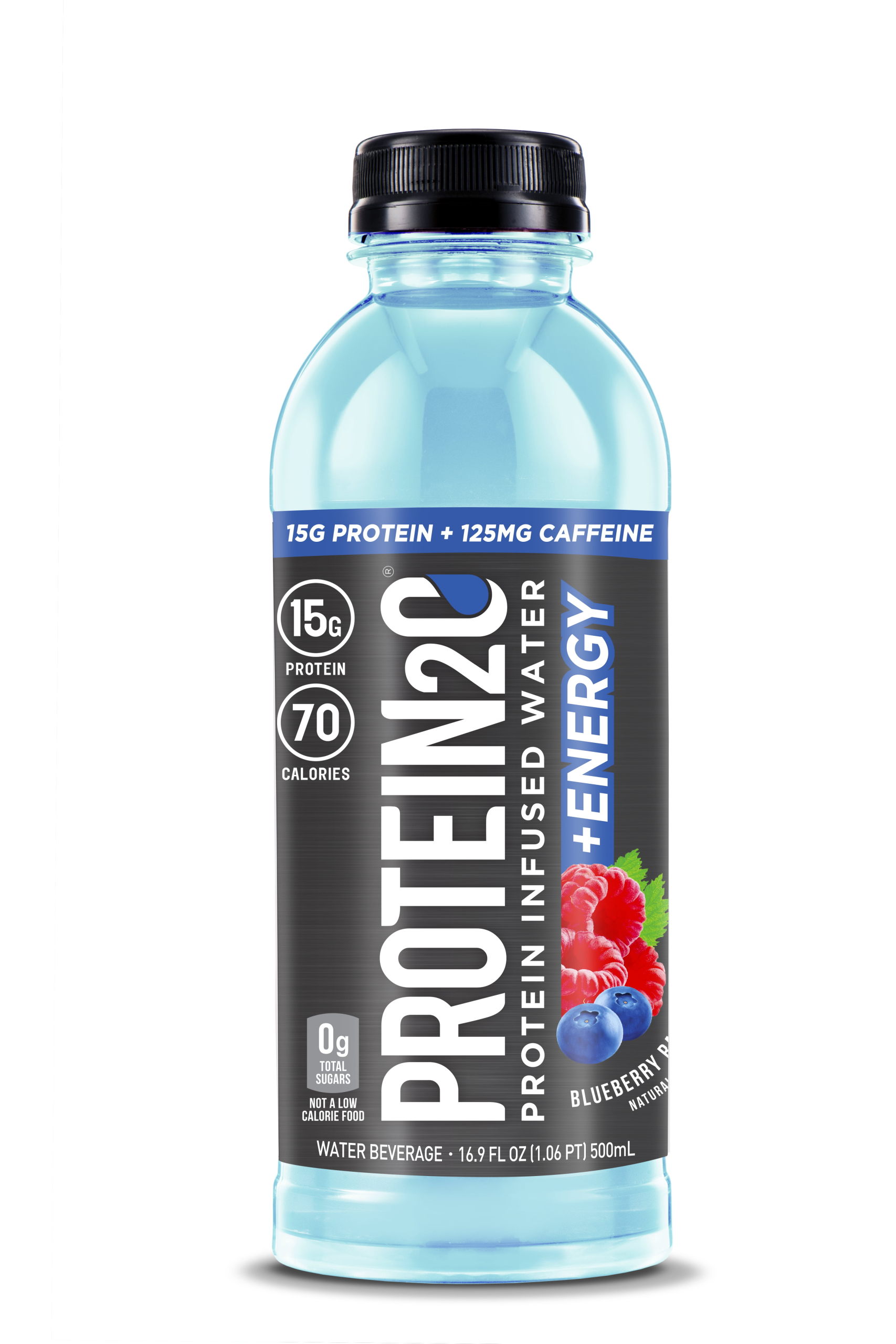Protein water is rapidly gaining popularity as a refreshing beverage option packed with the nutritional benefits of protein. This innovative drink caters to health enthusiasts who are often on the hunt for convenient ways to meet their daily protein intake goals. With products containing anywhere from 15 to 20 grams of protein per bottle, many wonder, “is protein water good for you?” Not only does it offer fewer calories and less sugar compared to traditional protein shakes, but it also provides essential amino acids for muscle recovery post-exercise. Before you head out to buy protein water, understanding its benefits and how it compares to other protein sources is essential to making an informed choice.
The emergence of protein-infused beverages, often referred to as protein-enriched drinks, has sparked interest among fitness aficionados and casual consumers alike. These innovative options aim to deliver the necessary nutrients without the bulk of traditional protein supplements. Enthusiasts frequently inquire about the advantages associated with these beverages, such as their role in recovery and daily protein consumption. Nevertheless, it’s crucial to delve into how protein water compares with classical protein shakes to reveal which might be the better fit for your lifestyle. Understanding how much protein is in protein water and its potential effects can help you decide if this trendy drink is right for your nutritional needs.
Understanding Protein Water: What You Need to Know
Protein water is a relatively new health trend, taking the fitness world by storm with its promise of easily consumable protein without the heaviness of traditional protein shakes. It is essentially water that has been infused with whey protein isolate, providing a convenient way to boost your protein intake, especially for those on-the-go. Typically, a standard bottle ranges between 15-20 grams of protein and contains only 60-90 calories, making it an attractive option for fitness enthusiasts looking to hydrate and refuel simultaneously.
However, it’s essential to consider what protein water lacks compared to whole food sources. While protein water offers a quick supply of protein, it doesn’t provide the amino acid profile or the feel of satiety that comes with eating real food. Nutrition experts like Jim White emphasize that protein from whole food sources can not only help with muscle recovery but also offer additional nutrients that are absent from processed drinks. Therefore, while protein water can complement your diet, it should not replace nutritious meals.
The Benefits of Protein Water: Is It Worth It?
The benefits of protein water can be quite compelling if you’re seeking to enhance your post-workout recovery. Many users find that protein water aids in muscle recovery due to its decent protein content and lower calorie load compared to traditional shakes. For athletes or those involved in regular strength training, consuming protein water can facilitate the rebuilding process of damaged muscle tissue, a crucial aspect of any fitness regimen. Moreover, its lighter nature makes it easier to digest, especially after intense workouts.
Nevertheless, the benefits of protein water come with some caveats. It often contains artificial sweeteners which might heighten sugar cravings and can be unsuitable for people with lactose intolerance due to the whey protein. Therefore, while it can serve as a handy hydration source post-exercise, it’s not a substitute for whole foods that provide essential nutrients and health benefits beyond just protein.
Protein Water vs Protein Shakes: Which is Better?
When comparing protein water and protein shakes, the differences are apparent. While protein shakes typically pack a heavier protein punch with about 20-30 grams of protein per serving, they also come with additional calories and sugars. On the other hand, protein water serves as a lighter alternative, ideal for those who may be looking to reduce calorie intake while still accessing some protein benefits. For those engaged in high-intensity workouts, protein shakes may be better suited to meet recovery demands due to their higher protein content.
However, the choice between protein water and protein shakes can also boil down to personal preference and specific dietary needs. For individuals who experience discomfort after consuming heavier shakes, protein water could be the perfect option to help meet their protein goals without feeling bloated. Ultimately, it’s important to consider how each option fits into your overall nutrition plan, and whether they align with your fitness objectives.
How Much Protein in Protein Water: A Quick Guide
Typically, an average bottle of protein water contains between 15 to 20 grams of protein. This is a reasonable amount for a quick refreshment, especially after workouts when your muscles need optimal recovery aid. Additionally, the protein in protein water is derived from whey protein isolate, a complete protein that provides all essential amino acids, which can be beneficial for muscle maintenance and growth.
It’s important to note, however, that while protein water does provide a quick source of protein, it may not meet the total protein requirements for active individuals, which experts recommend to be between 1.2-2.0 grams of protein per kilogram of body weight. Thus, if you’re heavily involved in strength training or muscle-building exercises, consider incorporating more protein-dense foods alongside occasional consumption of protein water to meet your nutritional needs.
Buying Protein Water: What to Look For
When it comes to buying protein water, it’s key to read labels carefully to choose brands that align with your health goals. Look for products that use high-quality whey protein isolate, as this type typically contains fewer impurities and lactose. Additionally, check the ingredient list for any unnecessary additives like excessive sugars or artificial flavors that could detract from the health benefits.
Budget is another factor to consider; protein water tends to be more expensive than traditional protein products. Ensure that you gauge the cost relative to the amount of protein you’re getting, as this can help you determine if it’s a worthwhile investment for your overall diet. While it can be a convenient choice, regular consumption should be balanced with whole foods that offer a broader range of nutrients essential for overall health.
The Role of Protein Water in Muscle Recovery
Protein water can play a supportive role in muscle recovery, especially when consumed post-workout. Its lightweight nature allows for quick digestion, which can help jumpstart the recovery process by delivering a concentrated dose of protein to the muscles. This is particularly beneficial for athletes looking for a quick and easy way to up their protein intake after strenuous exercise.
However, it should be noted that while protein water can aid in muscle recovery, it’s not a replacement for more comprehensive sources of nutrition. Consuming protein water should be part of a broader post-workout recovery strategy that includes hydration, carbohydrates, and other nutrients. Pairing it with whole foods such as fruits, whole grains, or nuts can enhance recovery benefits and provide a satisfying nutritional profile.
Evaluating Protein Water’s Nutritional Value
Nutritionally, protein water stands out due to its relatively low-calorie content and moderate protein levels. Unlike many high-calorie protein shakes, it provides a refreshing twist to maintaining your protein levels throughout the day without drastically impacting your caloric intake. This makes it an appealing option for those mindful of their diet but still aiming to ensure adequate protein consumption.
However, it is crucial to understand its limitations. While it offers hydration and some protein, protein water does not contain the same range of vitamins and minerals that nutritional whole foods do. Thus, consuming it alongside a balanced diet rich in proteins and other nutrients is essential for overall health. Regularly incorporating protein-rich meals is necessary to complement the benefits derived from protein water and maintain optimal body function.
Common Myths about Protein Water Debunked
When it comes to protein water, several myths often cloud consumer judgment. One of the predominant misconceptions is that protein water can entirely substitute meals, particularly post-workout. While it does contain some protein, it lacks the density and complete nutrient profile that comes with foods. Relying solely on protein water could leave you lacking vital nutrients, making it an insufficient replacement for real meals.
Another common myth is that all protein waters are equally beneficial. In reality, the nutritional content can vary significantly between brands, with some containing excessive sugars or added calories. Thus, it’s vital to conduct thorough research and determine which option aligns best with your dietary needs. Educating yourself about these misconceptions can empower informed choices that benefit your health long-term.
Hydration and Protein Needs: Finding Balance
Balancing hydration and protein needs is crucial for maintaining overall health, particularly for those engaged in regular exercise. Protein water can be an interesting and effective tool in meeting protein requirements while helping you stay hydrated. It’s especially beneficial during workouts where convenient, easy-to-digest protein is necessary for recovery.
Nevertheless, hydration should not entirely rely on protein water. Plain water remains essential for optimal hydration and should be consumed alongside other sources of nutrients, including electrolytes and carbohydrates. Striking a balance between protein water, traditional hydration methods, and a varied diet will ensure that you support your health and fitness goals effectively.
Frequently Asked Questions
What are the benefits of protein water?
Protein water offers a convenient way to increase your protein intake while being lower in calories and sugar compared to protein shakes. It’s infused with whey protein isolate, known for supporting muscle growth and recovery. This makes protein water an excellent option post-workout or on-the-go, especially for those who struggle to consume enough protein through meals.
Is protein water good for you?
Yes, protein water can be good for you as it provides a quick source of protein with fewer calories and less sugar than traditional protein shakes. However, it shouldn’t replace whole food sources of protein in your diet. It’s best used as a supplement to your nutrition rather than a primary source.
How does protein water compare to protein shakes?
When comparing protein water vs protein shakes, protein water generally contains fewer calories and sugar, making it a lighter option. While protein shakes often have added ingredients for flavor and texture, protein water is more straightforward and can be easier to digest, especially for those sensitive to dairy.
How much protein is in protein water?
Typically, a 16-oz. serving of protein water contains between 15 to 20 grams of protein. This can help meet your daily protein needs, especially when you’re not able to consume sufficient protein from meals.
Where can I buy protein water?
You can buy protein water at most health food stores, supermarkets, and online retailers. It’s becoming increasingly popular, so it should be readily available in the beverage aisle alongside other sports drinks and protein supplements.
| Key Point | Details |
|---|---|
| What is Protein Water? | Protein-infused water containing whey protein isolate—known as a complete protein. Usually has between 60-90 calories and 15-20 grams of protein per 16 oz bottle. |
| Benefits of Protein Water | Lower in calories and sugar than protein shakes. Can aid in muscle recovery post-exercise but should not replace whole food protein sources. |
| Drawbacks of Protein Water | Contains artificial sweeteners which may lead to increased cravings. Not suitable for those who are lactose intolerant due to whey protein. |
| Conclusion on Usage | While protein water can help boost protein intake, it should be consumed alongside regular water and real food for optimal nutrition. |
Summary
Protein water is an innovative beverage designed to enhance your protein intake while hydrating. While it can be beneficial, particularly for those with high protein needs, it is not a substitute for whole food sources of protein. It’s important to maintain a balanced diet and ensure adequate hydration with plain water, alongside considering protein water as a supplementary option. For those looking to increase their protein intake effectively, combining protein water with nutrient-rich snacks is a practical approach.



